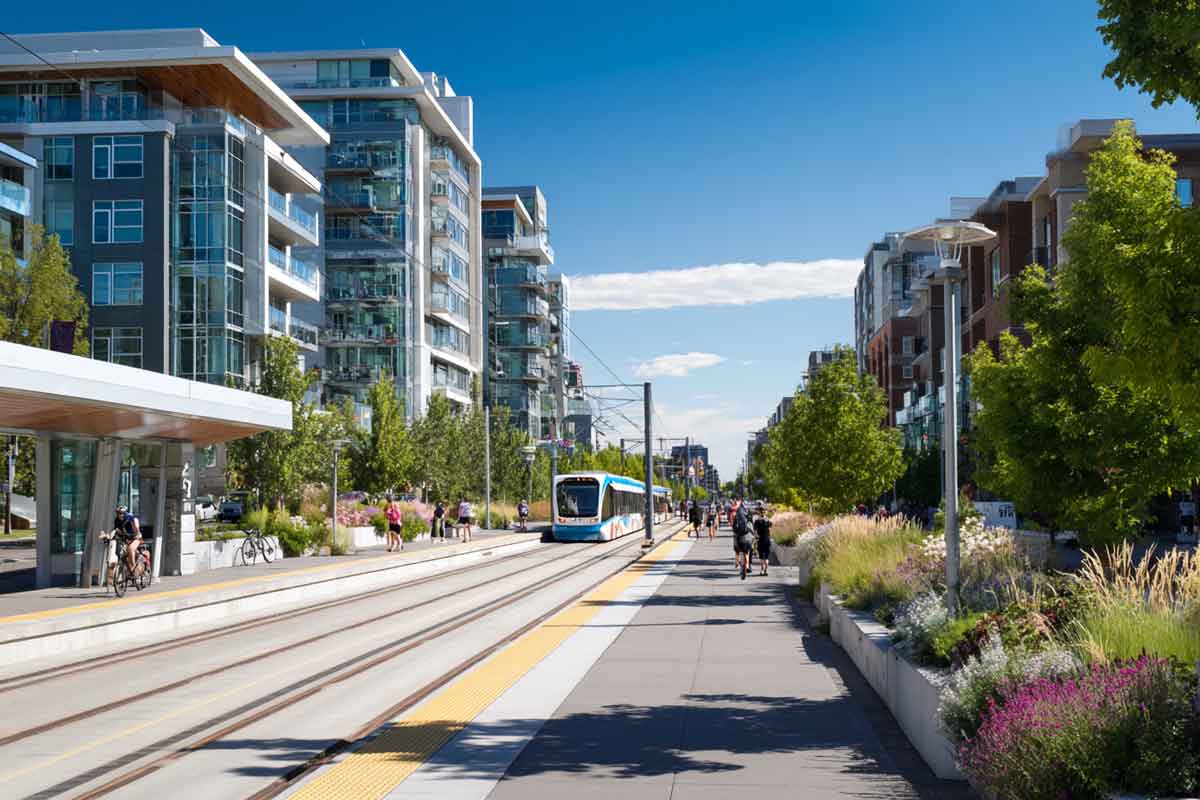Choosing Life Near Transit: A Smart Move
When choosing where to live, proximity to public transit can significantly influence your lifestyle. Whether you’re a daily commuter, a student, a retiree, or someone looking to maximize walkability and reduce dependence on a vehicle, living near a transit line can be a game-changer. In Calgary and surrounding communities, where urban sprawl meets transit development, understanding the full picture of transit-oriented living is key to making an informed real estate decision.
In this blog, we’ll explore what it truly means to live near public transit—highlighting the lifestyle advantages, potential trade-offs, and key considerations for homebuyers, renters, and investors alike.
Enhanced Convenience and Connectivity
The Commuter Advantage
- Shorter commute times mean more personal time and a better work-life balance.
- Access to multiple transit lines offers flexible commuting and city travel.
- Ideal for students attending University of Calgary, SAIT, or Mount Royal University.
Cost Savings and Long-Term Value
Lower Transportation Costs
Owning fewer vehicles—or none—translates into significant savings over time. Monthly fuel, insurance, maintenance, and parking costs add up. Transit-accessible homes enable a car-light or car-free lifestyle.
Property Value Considerations
- Homes near transit routes often hold value better and appreciate steadily.
- Transit-oriented developments (TODs) offer walkability, retail, and amenities.
- Check if upcoming infrastructure aligns with Calgary’s long-term transit plan.
Increased Walkability and Urban Lifestyle Appeal
More Than Just Transit
- Encourages a healthier lifestyle through walking.
- Access to parks, cafes, cultural venues, and shopping.
- Improved social interaction and community involvement.
Environmental and Social Impact
A Greener Way to Live
Public transit use reduces greenhouse gas emissions and supports sustainability goals.
Equity and Accessibility
- Inclusive access for seniors, students, and individuals with disabilities.
- Affordable housing projects often placed near transit hubs.
Noise, Crowds, and Other Trade-Offs
Consider the Potential Drawbacks
- Noise from buses/trains during peak hours.
- Higher foot traffic and congestion around stations.
- Potential safety concerns in dense transit areas.
How to Mitigate
- Choose units with sound insulation or just outside the busy zone.
- Visit at different times to assess activity and noise levels.
Who Benefits Most from Living Near Transit?
- Young professionals working downtown
- Students reliant on public transportation
- Seniors seeking low-maintenance lifestyles
- Families needing access to schools and parks
- Real estate investors targeting strong rental zones
Investing in Transit-Oriented Real Estate
The Investor’s Edge
- High rental demand and lower vacancies near stations.
- Look for homes within 800 meters of a major transit stop.
- Check Calgary’s redevelopment plans and mixed-use zoning.
Making the Right Move: What to Ask Before Buying
- Is this home walkable to transit?
- What are the noise levels during rush hour?
- Is the area safe and well-lit near the station?
- Will future transit expansions improve value?
A REALTOR® familiar with transit zones can help evaluate these factors.
Final Thoughts: Transit Can Transform Your Lifestyle
Living near public transit isn’t just about commuting—it’s about enabling a more connected, flexible, and affordable lifestyle. Whether you’re buying your first home, moving closer to downtown, or investing in high-potential property, transit accessibility should be a key consideration.
About the Author
Malvinder S. Tiwana is the founder of the Tiwana Real Estate Team, serving Calgary and surrounding areas for over two decades. Specializing in residential, rural, and commercial real estate, Malvinder provides expert guidance for clients exploring transit-oriented living. Visit www.maltiwana.ca to start your journey toward smarter real estate decisions.








